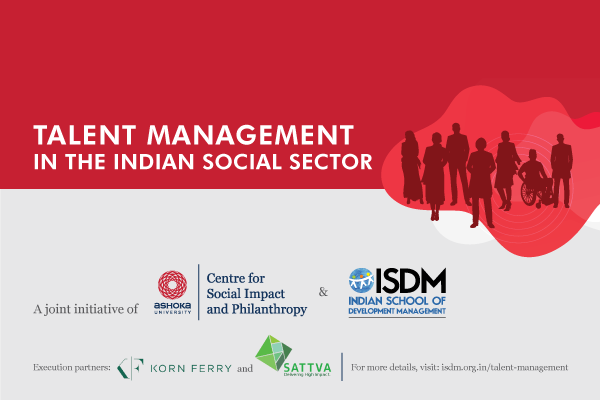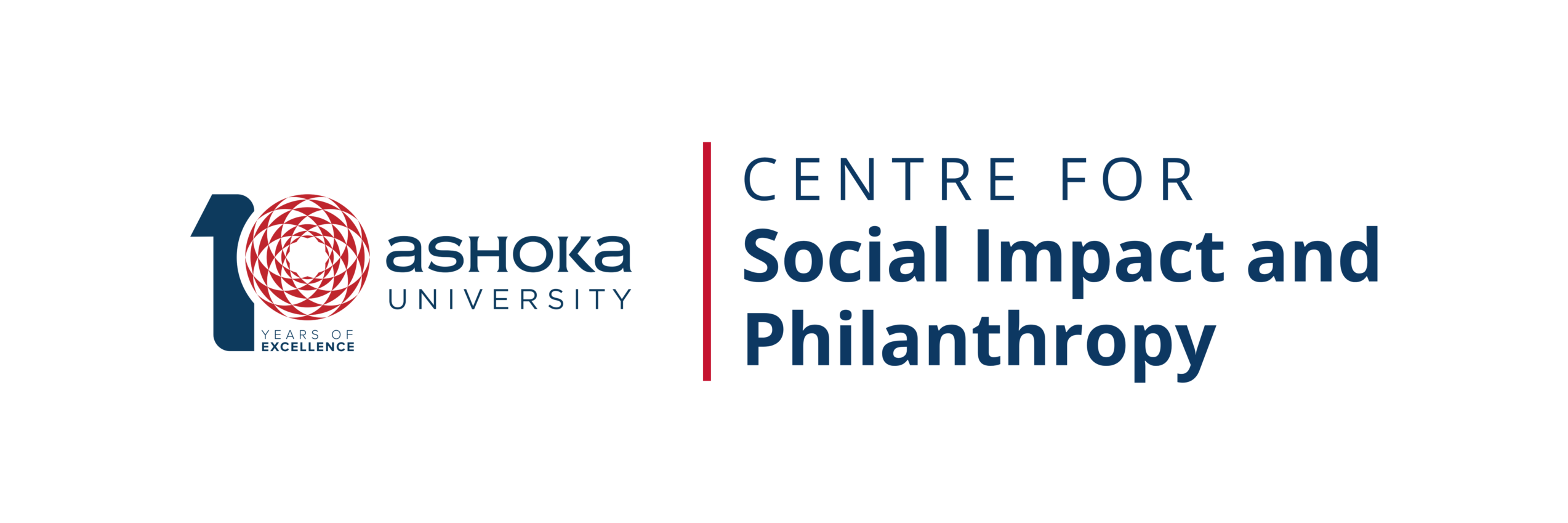CSIP, ISDM Launch Talent Management Study for India’s Social Sector



- Study to enable leaders in the social impact sector to build strategies and infrastructure conducive to the talent management needs of their organisations
- Findings will include compensation benchmarking with reliable and accessible data on compensation trends for different roles across organisation
- Report aims to facilitate the emergence of a professional, data-informed and transparent ecosystem of talent management within the social impact sector
New Delhi, India — Ashoka University’s Centre for Social Impact and Philanthropy (CSIP) and the Indian School of Development Management (ISDM) have jointly launched the CSIP-ISDM Talent Management Study for India’s social purpose organisations (SPOs).
This research initiative seeks to help India’s SPOs attract and retain talent, in part by shedding light on the factors that drive committed individuals in this sector. The study aims not only to uncover the current state of talent management within this sector but also to create a knowledge infrastructure; the resulting report, will include case studies on talent management practices.
“The demand for talent in India’s nonprofit sector far outstrips its supply”, says Ingrid Srinath, CSIP Founding Director. “This pioneering study seeks to address the critical information gaps that hinder nonprofits from attracting, nurturing and retaining the skills they need to grapple with the range and complexity of issues they confront.”
While the economic turbulences caused by the ongoing pandemic have forced many organisations to view human capital investments through a ‘cost-lens’ rather than an ‘asset-lens’, ‘talent’ continues to be a key differentiator for organisational performance and effectiveness despite the proliferation of technology. Driven by the necessity to be sufficiently equipped with the right kind of skillsets and perspectives in rapidly evolving environments, organisations are becoming increasingly intentional about their talent management practices. In addition to outward-facing exercises like compensation benchmarking, organisations are increasingly turning to internal reflection exercises and surveys to determine what their incumbents really seek from their experience.
Speaking about the research partnership, Mr. Ravi Sreedharan, ISDM Founder, said “ISDM is thrilled at the initiation of the first-ever attempt to build a shared knowledge infrastructure on Talent Management in the sector. This study is vital for the social impact sector to establish and have access to knowledge commons that guide and inform management practices in SPOs. There is an urgent and underlined need for greater synergies in the way that a sector as wide and disparate as the social impact space understands and works on managing its most vital capital. We are sure that the compensation database and knowledge resources that the study makes available will be of immediate and long-term use to thousands of SPOs all of whom are grappling with managing and retaining talent in the present crises where funds run low, but our work needs greater impact.”
As execution partners for this study, Korn Ferry and Sattva Consulting will assist with data collection and analysis. The study will engage in a compensation benchmarking exercise to review compensation practices through an analysis of data across organisational archetypes.
The study will ensure that funders are equipped to make informed decisions that enable effective talent management practices within the sector. Gayatri Nair Lobo, COO at ATE Chandra Foundation says, “At the ATE Chandra Foundation, we believe an organisation is only as impactful as its leaders, and therefore heavily invest in the leadership capacity of NGOs. Through this study, undertaken by CSIP, we hope to better understand what it will take to fill the prevailing data gap in talent management. We are confident that the study will pave a pathway to stronger human resource capacity in the development sector”.
To learn more or request a participation invitation for your organisation, please email research@isdm.org.in.


